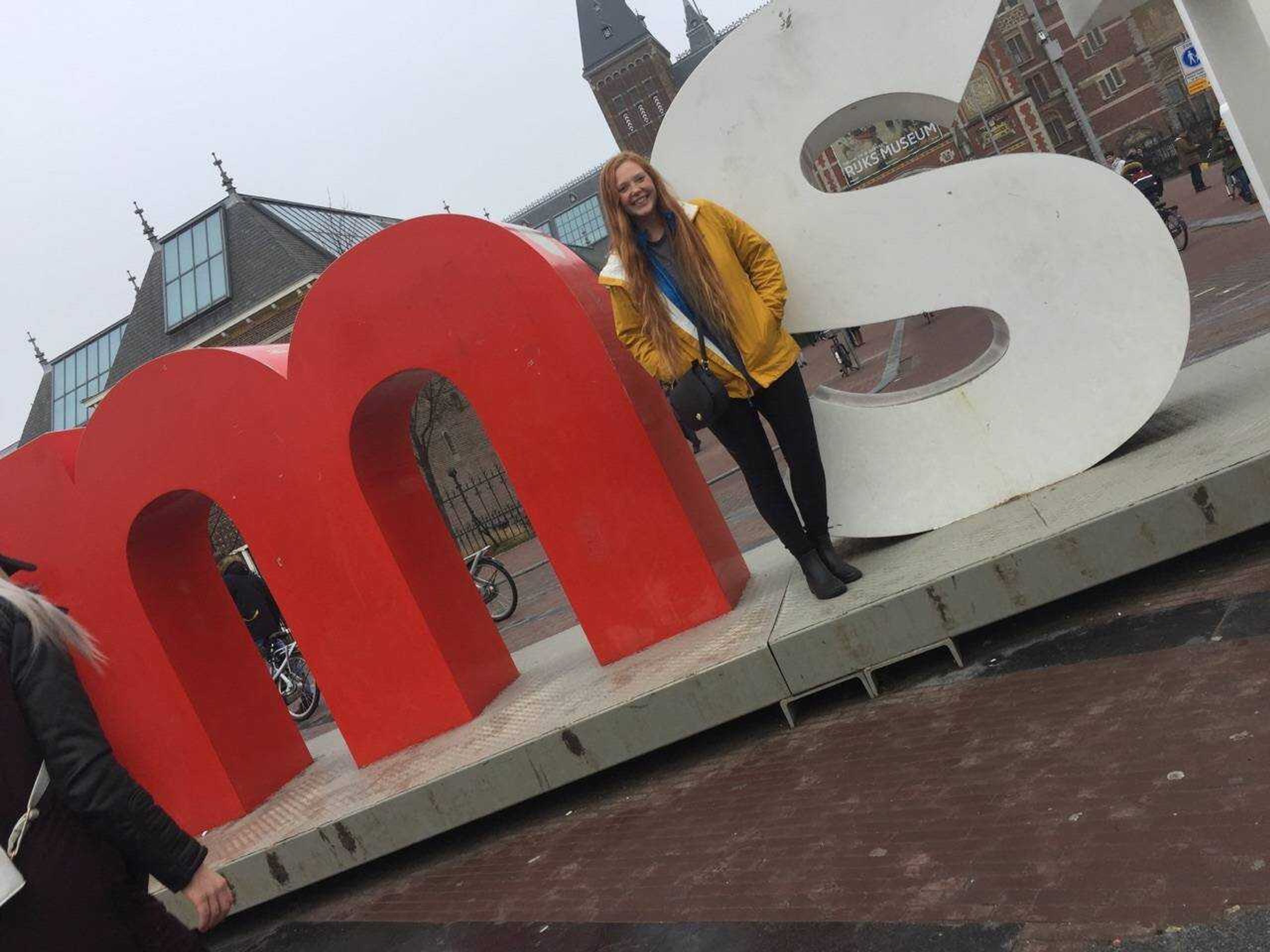*Editor's note: The story was updated at 8:00 p.m. on Feb. 20 to reflect changes made to the location of schools where Bliss was offered positions.
Bailey Bliss, a soon-to-graduate Southeast senior, first needed to switch paths, but now is embarking on the journey of a lifetime abroad. After graduating in May, Bliss will begin her career as an educator in El Salvador.
Bliss, a self-described history nerd, came to Southeast on scholarships and entered the Historic Preservation Program in hopes of working in museums. Bliss soon realized her initial path into history was not what she thought it would be. As a freshman, she decided to switch to secondary education — social studies.
At first, the move to education was based solely on her love of history, but once she began student teaching in classrooms and engaging with students, that is when she got “the feeling.” She said it is the feeling every teacher gets when they know the classroom is exactly where they are meant to be.
But it was at Sikeston Junior High School in Chantal Herrion’s seventh-grade ancient civilizations classroom in which Bliss discovered a passion that would soon send her to a brand new world. In cooperating schools, such as Sikeston Junior High, Southeast students like Bliss are placed in the classroom to observe and eventually charged to teach a few lessons.
Last spring, cooperating teacher Herrion volunteered to mentor Bliss. On the first day, Herrion said she was impressed with Bliss’ passion, knowledge and talent.
“When I met Bailey and we started talking I could see she just really was very much a cultural historian,” Herrion said.
Like Bliss, Herrion appreciates culture. In fact, it was the reason Herrion spent seven years teaching abroad. The first five years teaching English as a foreign language in the southern part of Taiwan and then, in the Middle East, teaching in Bahrain.
Herrion saw her own adventurous spirit in Bliss’ eyes and began asking her if she had ever considered teaching abroad. Soon, Herrion would guide Bliss and encourage her to explore the option of teaching overseas.
Fast forward a year later, Bliss is busy with her last semester of school before graduating from Southeast. She is student teaching at Ladue Horton Watkins High School in St. Louis. It is an opportunity to stretch her wings as an educator and foster a creative learning environment for her students.
She is busy putting together lesson plans such as a history-review exercise based on the card game spoons. It is that sort of creativity, Bliss said, that is replacing the lecture format.
“Education now is really trying to stay away from that (lectures) and really do a lot of different kind of things to help a bunch of people, because obviously not every student learns in the same way,” she said.
Bliss’ lesson plans are a balanced mix of technology, reading, writing and fun.
“It’s all about kind of diversifying to help students the most,” she said.
Earlier this month, Bliss took a small break from student teaching at Ladue for a trip to Cedar Falls, Iowa. The city may not rank in the top 10 best winter destinations, but for Bliss, it meant attending the University of Northern Iowa’s Overseas Recruiting Fair.
During the three-day recruiting fair, 113 American international schools were represented, looking for teachers to place overseas. Bliss already had Skype interviews with some of the schools, two of which were with the American School of El Salvador.
“I just really liked them and I talked to several of their teachers online; they had given me their email,” she said. “I kind of knew that’s where I wanted to go.”
Bliss’ first interview during the recruiting fair was with the school she wanted, the American School of El Salvador. That night, she went to her hotel with several job offers in hand from schools in Bahrain and Honduras, but Bliss wanted to teach in El Salvador. She decided to call the representative from the American School of El Salvador.
“I called the guy who’s in charge of the El Salvador school and I was like, hey, I’m still interested in the position,” she said.
The school representative told Bliss that he and other school officials would need to discuss the candidates and would start calling people the next morning at 9 o’clock. Bliss said she knew he would call her.
The next morning, as Bliss was getting ready for her next round of interviews, the phone rang and it was the representative from the American School of El Salvador asking her if she was ready to come to El Salvador. Bliss immediately agreed and later signed the paperwork to teach for two years.
“It was really surreal,” she said.
As for Herrion, she could not be more excited for Bliss’ adventure into a new world and has some advice.
“Take it all in, take as many pictures as you can and get to know the locals wherever you go,” Herrion said.
“Find out where the locals go to eat and to shop and that’s where you go. Go off the beaten trail.”






